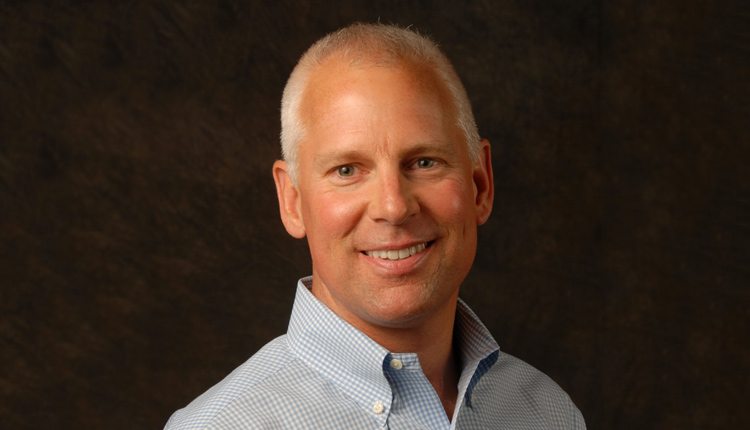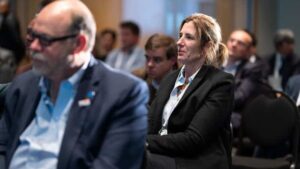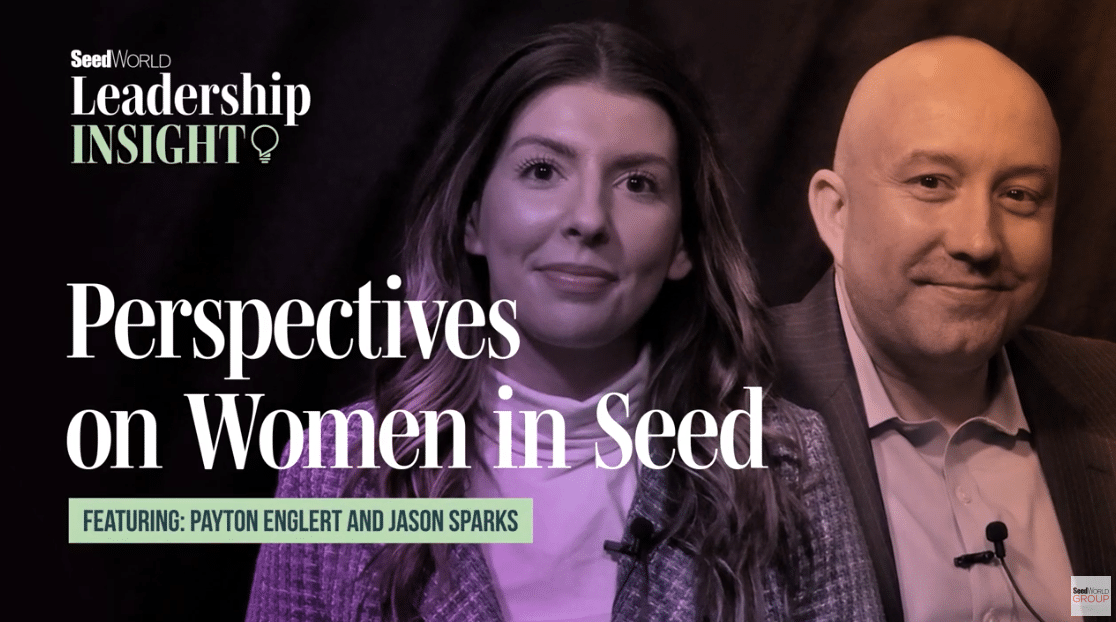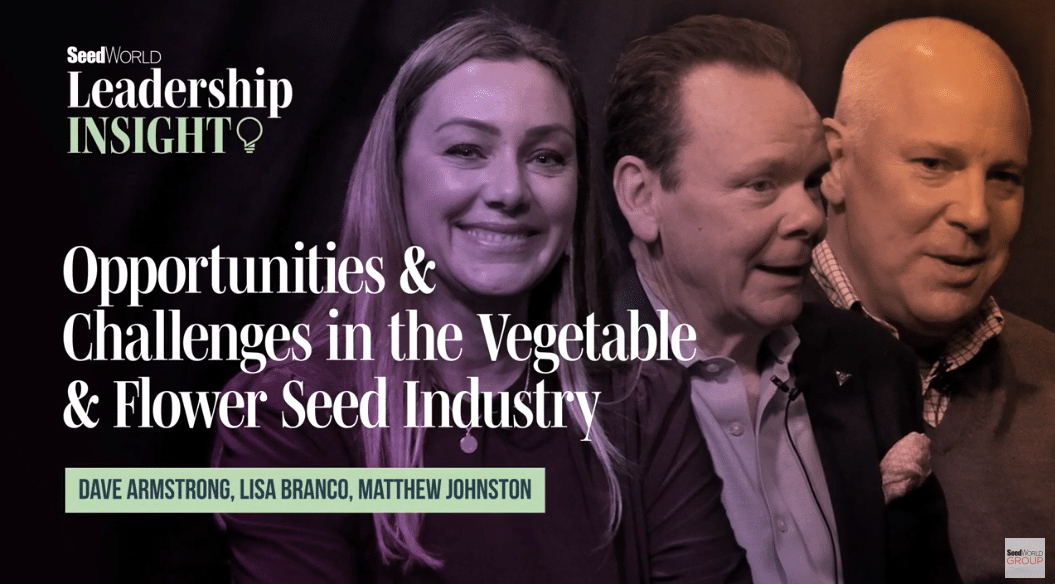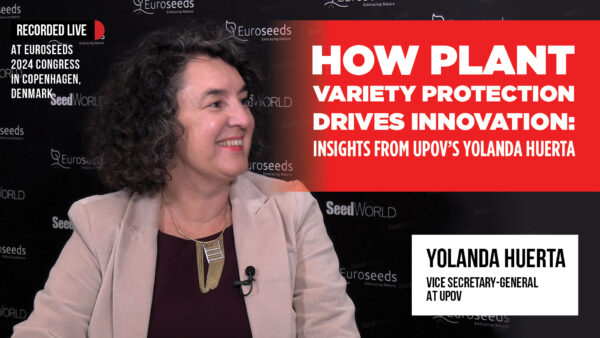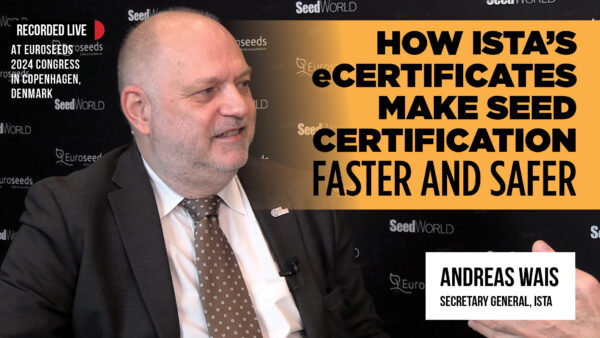From motivating employees to fostering new partnerships, Matthew Johnston leads HM.CLAUSE with a focus on people.
A long way from his roots in the sunshine state, Matthew Johnston leads the global strategy for HM.CLAUSE at the company’s headquarters in Portes-les-Valence, France.
HM.CLAUSE, a global leader in tomatoes, peppers and many other crops is led by Johnston, who was named chief executive officer in 2012, and is tasked with managing about 2,300 employees in 30 countries and annual sales of more than 300 million euros, or $330 million.
While some in Johnston’s position might choose to focus on the numbers, his priority is people — knowing who to hire, what motivates them and creating a culture of empowerment that leads to success.
“I try to create an environment that encourages risk-taking,” Johnston says. “I want people unafraid to make mistakes. Failure is an opportunity to learn. If you are not failing, you are not learning. I want people to be able to say ‘I think …’ I want people sharing and exchanging information and breaking down barriers.
“It’s about people. People want to play on a winning team, and at HM.CLAUSE, we play to win. I’m focused on creating this environment.”
With global research centers in Davis, Calif., and LaBohalle, France, and 13 varietal breeding centers around the world (Australia, Thailand, India, Vietnam, Mexico, California, Florida, Wisconsin, Poland, Spain and France), Johnston must be cognizant of a multitude of different cultural influences and customs.
Johnston shares that as part of that strategy, they are hiring more women, people from diverse cultures and backgrounds and young graduates who bring fresh perspectives and different thinking to the table. However, he notes the transition to a more diverse and younger population of employees is an incremental evolution to a more balanced workforce.
“More and more, the challenges the industry faces are not ones that a single company can undertake …”
— Matthew Johnston
“Winners will be those companies that can attract the brightest and best into their workforce,” he says. “It’s about having the right education, skills and management in the workforce. That’s how it is now and generally we understand how to manage and motivate others, but that could change with the evolving workforce dynamics.”
Johnston says the company’s smaller size works to its advantage. “We don’t have to hire as many people; however, we have to get those hires right,” he says.
While 14 percent of HM.CLAUSE’s annual sales revenue is reinvested in research and development, that sector comprises 29 percent of the company’s workforce.
Mark Stowers, HM.CLAUSE vice president and global head of research and development, says they are looking to create new opportunities to bring young people into agriculture. “Young people like the idea that we are decentralized, giving them international mobility, and that we breed for consumer-oriented characteristics.”
Within the research and development sector, Stowers says the trend is evident — more men are retiring and more women are coming in to agriculture.
According to a 2015 survey by AgCareers.com, more than 50 percent of participating companies added more women to their workforce during the past five years; however 79 percent of the women participating in the survey felt that there was gender inequality in the agribusiness industry. However, both the men and women surveyed agreed that there was less gender inequality in agribusiness than in the overall professional world.
When Johnston evaluates the changing dynamics in the workforce, he looks at the composition of schools’ student bodies in different areas of the world.
“You have to think about the mix in emerging markets,” he says. “We see more women working in agriculture in emerging markets, especially in management roles. This is very much a function of economies and regional demographics.”
Diversity of management teams includes gender, ethnicity, religion and economic backgrounds, Johnston says, noting that there are many different ways of thinking, making company employees more sensitive to each other and, in turn, customers around the world.
“I believe that in business, we have to meet customers needs — both today and in the future,” he says.
Not in Isolation
One business principle consumers demand now more than ever before is sustainability and stewardship, which go hand-in-hand.
“We must be good stewards of ourselves and of the germplasm we own and are entrusted with” Johnston says. “We must conduct ourselves in a way that allows for others in the future to continue our work.
“The seed industry is unique in that no one in our space is working with genetic material that someone else has not touched, whether that be universities, government researchers, non-government research organizations or other companies.”
That’s one reason why Johnston says diversity is so important, and germplasm diversity is becoming a bigger issue.
There are fewer and fewer companies, he says, which means fewer people are involved, leading to fewer thoughts and ideas of what might be important.
“That’s not healthy and in the long run, could pose a significant risk to genetic progress,” Johnston says.
As Stephen Covey once said: “Strength lies in differences, not in similarities.” Diversity is essential for an organization’s ability to innovate and adapt in a fast-changing environment. One study by Forbes has identified workforce diversity and inclusion as a key driver of internal innovation and business growth. Meanwhile, Harvard Business School reports that multicultural networks promote creativity.
One way of bringing in diverse perspectives and “outside-the-box thinking” is through partnerships, which is also a key part of HM.CLAUSE’s strategy, which Johnston employs.
“We’ve always been open to partnerships,” Johnston says, noting that the company’s growth affords it new opportunities. “We’ve reached a size that affords us the opportunity to do things that we couldn’t as just Clause or Harris Moran in past years prior to merging those companies. Our organization, scale and capabilities are far different than eight or 10 years ago.”
Diversity in Partnerships
Johnston explains that collaboration has been the DNA of the seed industry for a long time, but the primary focus has been on genetics and technology.
“More and more, the challenges the industry faces are not ones that a single company can undertake — phytosanitary issues, regulatory issues, access to germplasm … the need is only going to grow,” he shares.
One such partnership built during the past few years that expands the focus on collaboration is with the University of Florida’s Institute of Food and Agricultural Sciences and the Challenge 2050 Project in the College of Agricultural and Life Sciences. The project engages students from across university disciplines in discussion-based inquiry and collaborative problem solving to address the impact of population fluctuation on economic, environmental, food, health and social systems.
Johnston says the partnership is designed to foster and further relationships beyond the traditional areas of plant breeding and plant pathology. However, he recognizes those partnerships aren’t going to pay the bills and must complement the revenue producing collaborations.
Additionally, the partnership with the university looks at what HM.CLAUSE can contribute to research, education and learning. That might come in the form of access to laboratories, access to equipment and collaboration on new technologies.
Johnston explains that the benefit of these exchanges not only come in the form of tangible objects but also are very enriching for employees of HM.CLAUSE and the university. There’s the opportunity to engage with undergraduate and graduate students and to serve as a mentor to a young student. He says it provides an opportunity for employees to give something back to the research community and industry, to hear ideas and thoughts from outside our own company, and to get a glimpse of the talent on which our future depends.
“The same can be said of our partnership with the University of California, Davis,” Johnston says, adding that HM.CLAUSE co-created a business incubator with UC Davis and allocated lab space for start-up companies on its research campus. “It’s a great way to foster and encourage open thinking — diversity of thought.”
Even though the end goal is to deliver vegetable varieties that provide farmers with better disease resistance, higher yields and improved consumer attributes, it’s still a people business. “Knowing people, being able to communicate with them, understand what motivates them, and support their success is what leads to our success as a company,” Johnston says.


